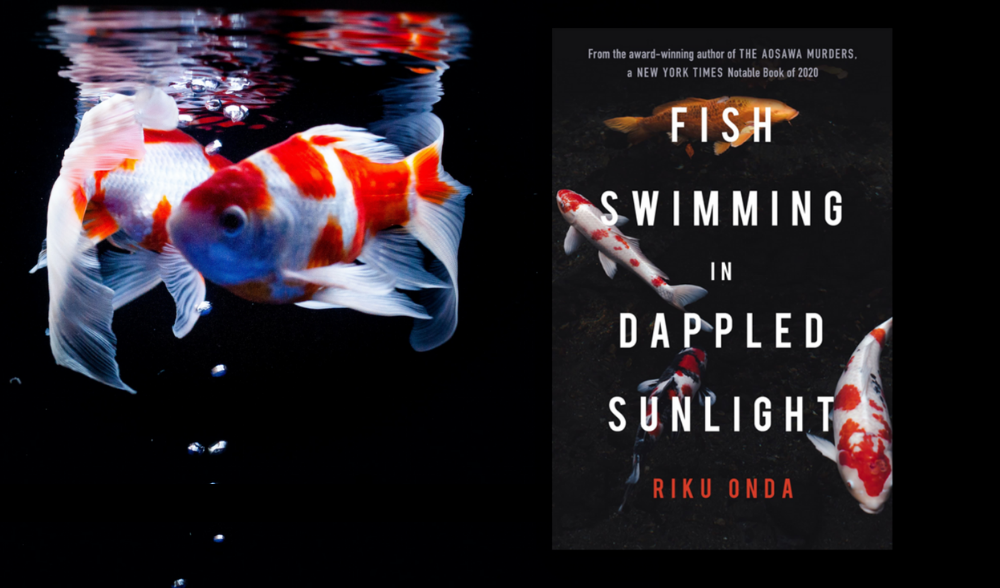BOOK REVIEW EDITOR-IN-CHIEF ELLA KELLEHER WRITES – Japanese suspense author, Riku Onda, presents us with a psychological thriller that spans the course of a single night. A man and woman decide to spend one final evening together in their shared Tokyo apartment before going their separate ways. Over the course of a shared convenience store meal and some drinks, they discuss the events that brought them to this moment, with both feeling together yet simultaneously apart. The source of their waning affair? A year spent in absolute mental anguish after their hiking guide fell off a cliff during the couple’s trip to the mountains. In the span of a single night, it comes to light that the guide’s death may not have been a complete accident; the woman believes the man murdered him and vice versa, and both are determined to use their last moments together to secure a confession. The guide, connected to the couple in ways that make his demise even more mysterious, begins to haunt them and slowly drive them mad.

Fish Swimming in Dappled Sunlight (2022) is Riku Onda’s second translated work after the success of her first English release, The Aosawa Murders (2020). Both pieces were translated by Alison Watts and released by Bitter Lemon Press, a boutique London-based publisher of international psychological thriller books. Tapping into her talent for crime dramas, Onda’s latest novel is both dreamy and noir – replete with poetic, whimsical language that outlines a haunting murder and a relationship that has turned macabre.
Unlike most modern dramas that follow a linear narrative progression, Onda flips through the pages of this story slowly, offering us various perspectives from two different narrators to color the events. We learn the woman’s name is Aki and the man is Hiro, about thirty pages into the story. The nature of their relationship unfolds in guilty, angst-ridden confessions from both characters. We soon discover that Aki and Hiro suspect they are brother and sister, even though Aki was adopted. Rewinding through time, we learn that the tension surrounding their intertwined lineage made the two even more madly in love. Their bond is otherworldly, as though they are tied not simply by mutual affection but also by blood.
Time leaps forward past the violent events on the mountain. The dreamy image of the novel’s namesake comes from Aki as she remarks on the distance in Hiro’s gaze with melancholic remorse: “I see sunlight flickering through trees. Fragments of the stifled emotion and desire that we do not put into words flit across them, like shadows woven through the wavering light. Deep below the dappled sunlight, fish twist and turn at the bottom of a dark-blue pool. Occasionally they rise to the surface with a flick of fins, but it is impossible to see them clearly or count them.” The interlude of sublimely translated poetic imagery makes Onda’s writing both remarkable and unforgettable. Visions superimposed onto one another, the flickering of warm sunlight onto a rippling pond, the red scales of koi fish floating to the seam of the still water – Onda uses imagery to paint a scene that implicitly evokes a slew of raw, conflicting emotions, the strongest being a deep sense of despondence and dread.

The rhythm of Onda’s thriller novel is non-conforming. Instead of a steadily increasing pace toward a climactic ending, she follows the unpredictable tempo of fish swimming laps in a dark pond. The fish, which could represent our anti-heroes Aki and Hiro, swim erratically from place to place. They swirl the water around where they see fit, following no particular pattern and always remaining tethered to one another in an eerie, cryptic dance.
The excitement boils from Aki and Hiro’s close proximity and mutual feral distrust of one another. They face each other in a compact room, one empty of anything except a suitcase, silently accusing the other of murder and surreptitiously attempting to elicit a confession. A strange combination of love and fear strains their relationship toward an explosion. Aki, more than once, believes that Hiro may even kill her. As she peers into her former lover and sibling’s face, she says, “The child in my dream digging in the sand has become a pale-faced young man. A young man I love. Who is now regarding me as if I am repulsive.” Could Hiro indeed be capable of killing both his sister and his lover all at once?
Aki, pushed to her limits from the intensity of their affair, reaches a final breakthrough about their shared heritage. This realization puts their relationship, past intimacy, and alleged murder all on the line. Like a stone thrown into a still pond, this epiphany ripples violently throughout the story and causes Hiro to reach his breaking point.
While Onda’s work could objectively be considered a work of crime fiction, it reads and feels much more like a psychological thriller. Onda brilliantly exploits the inherently human fear of the unknown – we can never honestly know what our loved ones think or do. We can only give our fairest guess. So, then, who are they really? What are they truly capable of? Do we ever actually know the people who surround us? Onda’s writing forces self-reflection and a confrontation of the ugly truths behind such questions. While some facts reach the surface, others are forever distorted by fear and time, sinking to the bottom of the pond where they are destined to remain buried.

LMU English major graduate Ella Kelleher is the AMI book review editor-in-chief and a contributing staff writer for Asia Media International. She majored in English with a concentration in multi-ethnic literature.


One Reply to “BOOK REVIEW: FISH SWIMMING IN DAPPLED SUNLIGHT (2022) BY RIKU ONDA – WHO IS THE KILLER?”